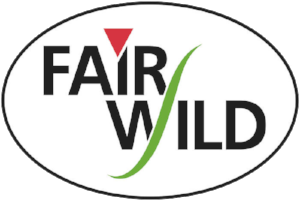Revised FairWild Standard launched
Release in German in Spanish
News story in Japanese (external site)
Weinfelden, Switzerland, 8 September 2010—FairWild Foundation launches its revised Standard for the sustainable management and trade in wild-collected natural ingredients for food, cosmetics and pharmaceuticals today. Globally, more than 400,000 tonnes of medicinal and aromatic plants are traded annually, with the great majority of these species harvested from the wild. Of the 50–70,000 plant species used medicinally world-wide, around 15,000 are thought to be threatened by over-exploitation and habitat loss.
“Application of the revised FairWild Standard will ensure that medicinal plants are sustainably managed and harvested, and that those involved in collecting and trading them receive a fair deal for their knowledge and efforts”, says Bert-Jan Ottens, Board member of the FairWild Foundation responsible for Communication and Marketing.
The latest Standard was drawn up following extensive consultations with plant experts and representatives from the global herbal products industry.
“As a major manufacturer of herbal products for the global market, the benefits of being part of a scheme to ensure sustainable supplies of our core ingredients are obvious,” says Josef Brinckmann of Traditional Medicinals. The company currently markets products ranging from Just for Kids Organic Nighty Night® Herbal Tea to Organic Throat Coat® Herbal Tea that contain FairWild certified ingredients.
According to Heiko Schindler of the Institute for Marketecology (IMO), a certifying body for the FairWild Standard, the global herbal products industry has been more than enthusiastic in adopting the principles of the FairWild certification scheme. “This year, 23 wild plant collection companies in thirteen different countries are on track to becoming FairWild certified”, he comments.
The FairWild Standard is useful not only for companies wishing to certify their products as sustainably traded. Earlier versions of the Standard are already being used by Government agencies in a number of countries as the basis of their natural resource management plans, thereby helping to fulfil their commitments to the Convention on Biological Diversity.
Professor Beate Jessel, President of BfN (the German Government’s Federal Agency for Nature Conservation, who helped fund the development of the FairWild Standard), comments “In this International Year of Biodiversity, Governments, businesses, and consumers alike need to recognise that over-exploitation of wild plants can threaten people’s health, economies and biodiversity on a broad scale, and undermine the livelihoods of collectors who often belong to the poorest social groups in the countries of origin.”
The FairWild Standard Version 2.0 combines all essential elements of the original FairWild Standard, focused on fair trade, and the International Standard for Sustainable Wild Collection of Medicinal and Aromatic Plants (ISSC-MAP), which focused on ecological sustainability. Moreover, the revised version incorporates the lessons learned through practical application of the Standard in the field.
ENDS
For further information on applying the FairWild Standard, or on obtaining FairWild certified products, see www.FairWild.org, or contact the FairWild Foundation at: info@FairWild.org.
Note
The FairWild Standard provides guidance on best practice harvesting and trading of wild-harvested plant (and similar) resources in eleven key areas:
1. Maintaining wild plant resources
2. Preventing negative environmental impacts
3. Complying with laws, regulations, and agreements
4. Respecting customary rights and benefit sharing
5. Promoting fair contractual relationships between operators and collectors
6. Limiting participation of children in wild collection activities
7. Ensuring benefits for collectors and their communities
8. Ensuring fair working conditions for all workers of the FairWild collection operations
9. Applying responsible management practices
10. Applying responsible business practices
11. Promoting FairWild buyer commitment
